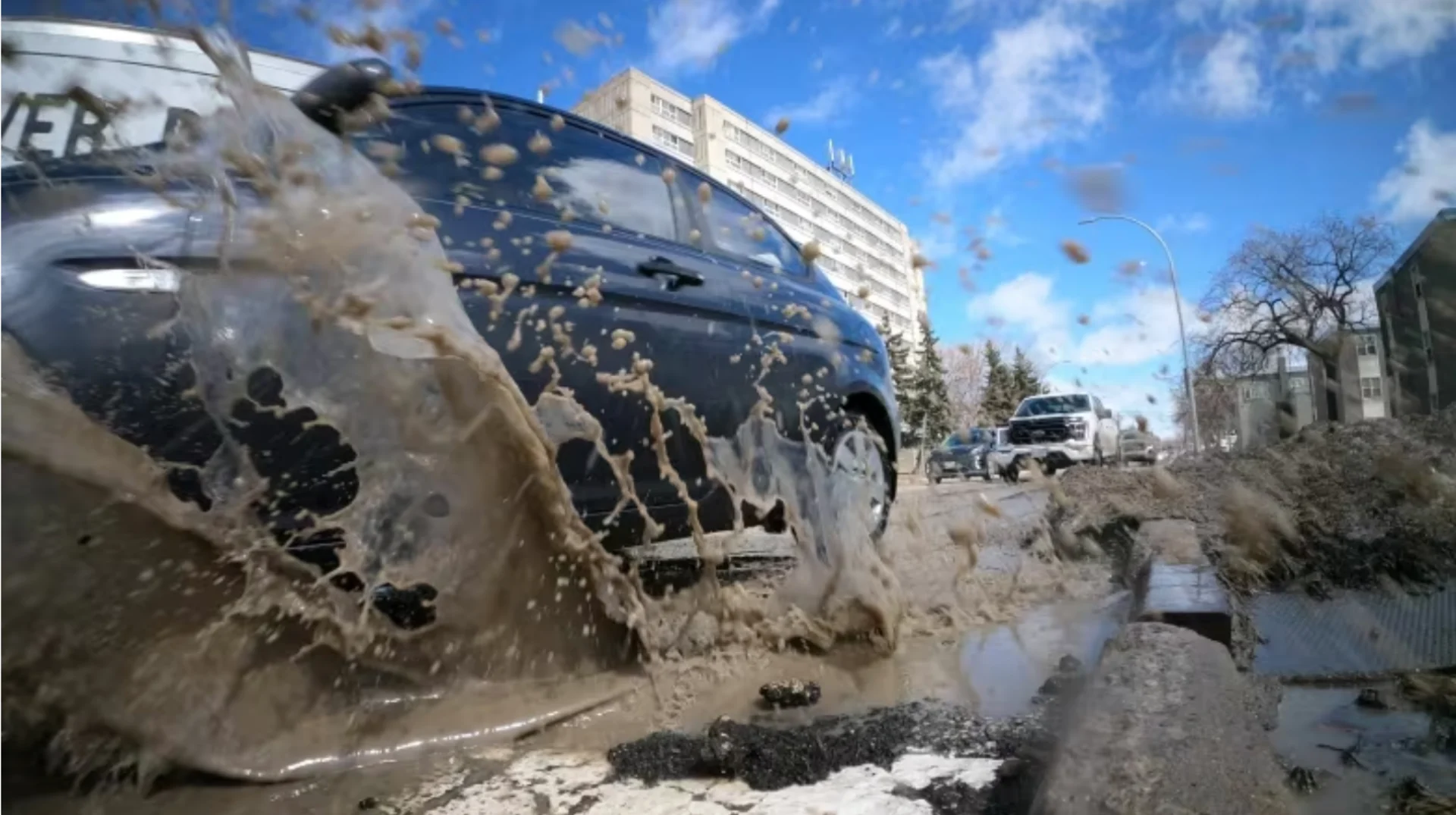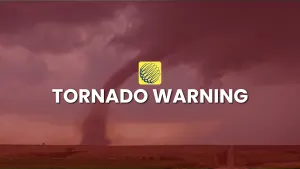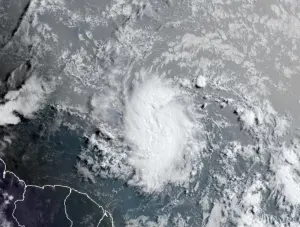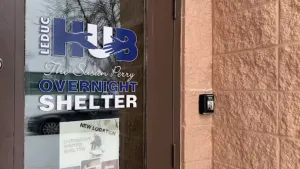
Potholes re-emerge as Winnipeg experiences unusual warm spell
Winnipeg crews were out Tuesday to patch up potholes revealed as above average temperatures hit parts of the Prairies.
Ahmed Shalaby, a University of Manitoba engineering professor who specializes in pavement design and highway materials, says people should enjoy the weather for now.
"It's been a beautiful couple of weeks, and quite unexpected," he said Tuesday. "Of course, that comes with its own challenges."
While cold weather is generally not good for infrastructure, roads that are already cracked or have potholes "will tend to see more damage" as they thaw, Shalaby says.
The city needs to prioritize road repairs that involve safety concerns in the short-term, but those fixes tend not to be long-lasting or cheap in this weather, he says. More permanent repairs need to be reserved for the summer.
Another risk for the roads, he says, would be weather that fluctuates from freezing to warm: "That would be more damaging."

Ten pothole complaints were made in the last two days, but that number does not include complaints made Monday since the data is not yet available, a city spokesperson says. (Trevor Lyons/Radio-Canada)
Scott Kehler, president and chief scientist at Weather Logics, says long-range forecasts show Manitoba's current warm spell is likely to continue for about another week.
"Then as we move toward mid-February, I expect we'll see a bit of a cool-down, but warm weather returning later in the month," he said Tuesday.
"Overall, I think that we'll continue to see a lot of mild weather for the rest of this winter. It won't be every day, but just in general this winter and early spring as well [are] likely to remain warm more often than cold."
A so-called "ridge in the jet stream" attributed to the global weather pattern El Niño, which returned for the first time in seven years in 2023, is pushing warm air into parts of the Prairies and causing the unseasonable weather.
"El Niño tends to make these ridges in the jet stream more common on the Prairies, and therefore we're getting more mild periods throughout the winter," said Kehler.
WATCH BELOW: 65°C Prairie warm up challenges Canadian January warmth record
'We'll just deal with it': city councillor
Shalaby says the effects of climate change on the horizon mean cities must be prepared for impacts on infrastructure.
Cities need to invest in roads that are designed to last 25 to 30 years and constructed with materials proven to last that long under extreme weather conditions, he says, adding that Winnipeg's infrastructure funding gap is "growing everyday."
"Unless we're able to build better and more economically, we're not able to address that gap and shrink it."
In 2018, the city said its infrastructure deficit — the gap between the money it needs to fix or replace things such as roads and the money it expects to actually have for that work — would total $6.9 billion over the next decade.
Several crews filled potholes across the city on Tuesday, a spokesperson told CBC News.
There were 10 pothole complaints made in the last two days, but that number does not include complaints made Monday since that data is not yet available, said spokesperson Julie Horbal Dooley.
Coun. Janice Lukes (Waverly West) says if the city constructs high quality and durable roads, then it must also "have the budget to maintain them."
Anyone wanting to report a pothole or other road repairs needed in the city can contact 311 over the phone or make a report online," she said.
"We'll just deal with it," said Lukes. "We're just going to be patching potholes." Lukes agrees that cities must prepare for climate change.
However, she said, "any changes where we have to do something more often has an impact on the bottom line."
The city is looking at ways to include climate change considerations in its 2024-27 budget, according to Luke. The budget is expected to be tabled in early February.
Kehler says it's a bit more difficult to pin climate change as a direct culprit behind current temperatures.
"This winter won't even be Winnipeg's warmest ever — [the] warmest ever was in 1877," he said.
"While it's definitely an unusually warm winter, it's not a record at this point, and the impact of climate change is something that would need to be studied more if we wanted to attribute that in any way."
This article, written by Ozten Shebahkeget, was originally published for CBC News.









